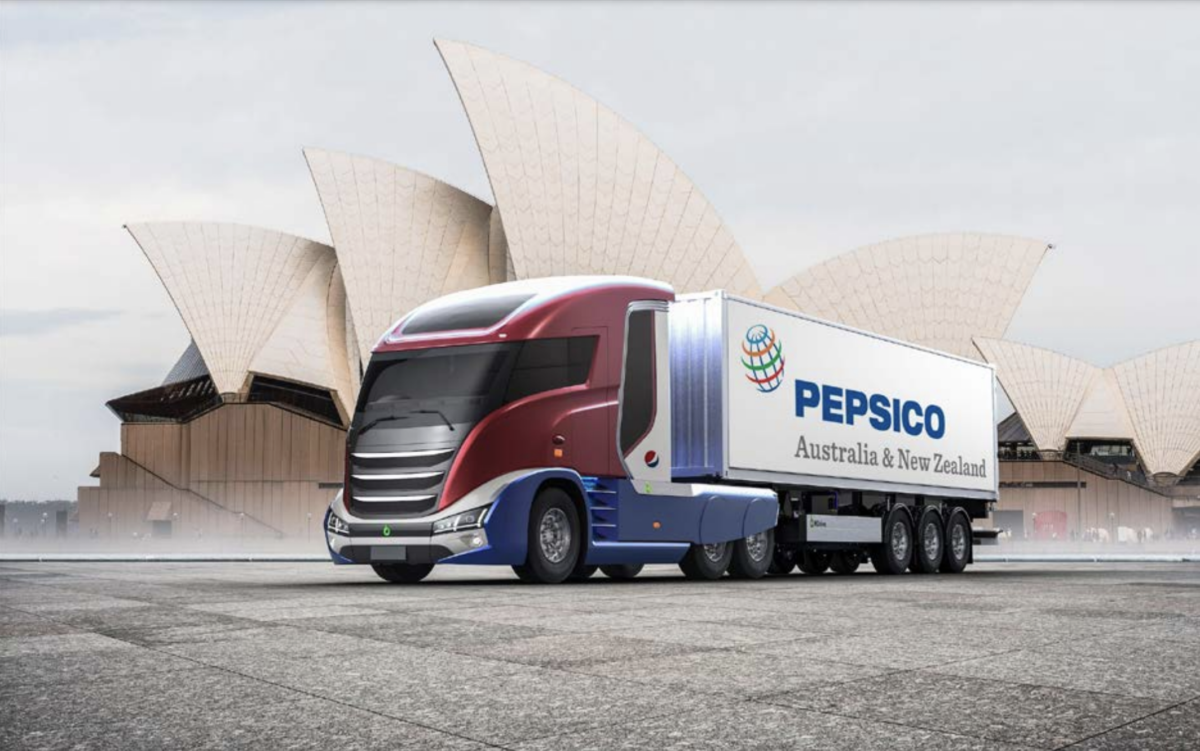Australian hydrogen company Pure Hydrogen will supply PepsiCo with a 160 kW hydrogen fuel cell ‘Prime Mover’ truck as part of a six month trial set to start in the second half of 2023.
The trial seeks to demonstrate the commercial use case of hydrogen fuel cell vehicles (HFCV) and was described by PepsiCo’s regional sustainability manager, Brent Gapes, as “a first” for the fast-moving consumer goods (FMCG) industry.
In addition to supplying the truck, Pure Hydrogen will also provide additional hydrogen fuel as required, including refuelling along with arranging repair and maintenance services.
Under the trial agreement, Pure Hydrogen is expected to receive $98,400 (excluding GST, [USD 63,600]) for the supply of the single HFCV truck over the six months trial. If successful, PepsiCo will have the option to lease the truck from Pure Hydrogen at monthly fee of $10,554 (excluding GST) over a potential seven-year term.
Such an agreement, Pure Hydrogen says, presents another revenue opportunity for the company.
If PepsiCo does not choose to keep the truck at the end of the trial, Pure Hydrogen say they will lease it to another potential customer. It expects its net cost from the trial will sit around $410,000.
It is not the only such endeavour Pure Hydrogen is pursuing. Earlier this year, it announced its partnership with Australia’s largest privately-owned waste management company, JJ Waste & Recycling. As part of that trial, Pure Hydrogen agreed to lease the waste company hydrogen-powered garbage trucks, promising to have the trucks in the streets of southern Queensland before 2022 is out.
At the time, Pure Hydrogen said it intended to use hydrogen vehicle company H2X Global, in which it has acquired a 24% stake, to “assist in the assembly of the truck.” It should be noted that the same investment firm, Liberty Energy Capital, is behind both H2X and Pure Hydrogen. Liberty is H2X’s primary shareholder and owns at 30% stake in Pure Hydrogen.
Questions around how relevant hydrogen technology will be for transport remain, especially since electric vehicle technologies are far more mature, making them cheaper and visible today. Another oft cited catch is the fact you need to generate twice as much electricity to produce hydrogen than if you just straight up charged an electric vehicle. However, hydrogen for heavy haulage, including for aviation and shipping, has gained traction though the question of trucking is far from settled.
This content is protected by copyright and may not be reused. If you want to cooperate with us and would like to reuse some of our content, please contact: editors@pv-magazine.com.









1 comment
By submitting this form you agree to pv magazine using your data for the purposes of publishing your comment.
Your personal data will only be disclosed or otherwise transmitted to third parties for the purposes of spam filtering or if this is necessary for technical maintenance of the website. Any other transfer to third parties will not take place unless this is justified on the basis of applicable data protection regulations or if pv magazine is legally obliged to do so.
You may revoke this consent at any time with effect for the future, in which case your personal data will be deleted immediately. Otherwise, your data will be deleted if pv magazine has processed your request or the purpose of data storage is fulfilled.
Further information on data privacy can be found in our Data Protection Policy.